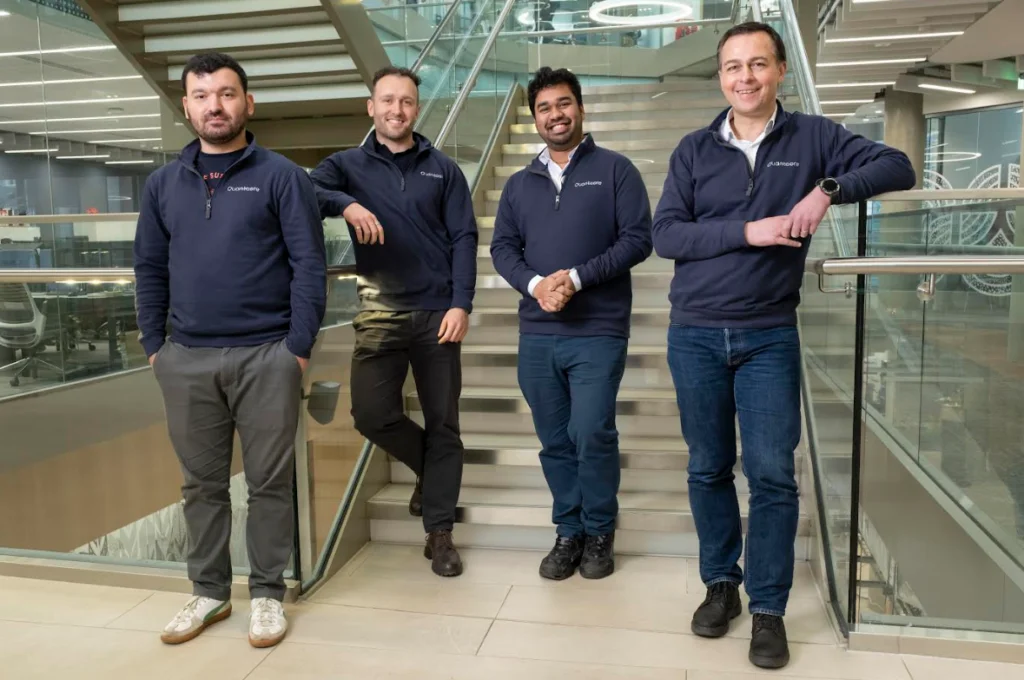Insider Brief
- Chipiron, a French deeptech company, has raised $17 million in Series A funding to finalize and clinically test its compact, accessible MRI scanner by 2026.
- The startup’s MRI technology aims to reduce cost, size, and infrastructure requirements, opening access to imaging in underserved clinics, mobile units, and patients previously excluded due to implants or physical limitations.
- The company’s MRI scanner integrates a patented low-Tc SQUID volume gradiomete, a SQUID antenna to capture MRI signals in an open environment.
PRESS RELEASE — Chipiron, a French deeptech company, has announced a $17M funding round to complete the development of its miniaturized MRI scanner, designed to make this critical imaging technology accessible worldwide.
This funding will enable Chipiron to build its first prototypes ready for hospital deployment, with clinical trials scheduled to begin in 2026.
Chipiron’s MRI scanner integrates a patented low-Tc SQUID volume gradiometer—the world’s first SQUID antenna to capture MRI signals in an open environment—enabling up to 10× improved signal-to-noise ratio over previous approaches.

An impressive deeptech trajectory since 2020
Founded in 2020 by Evan Kervella (CEO) and Dimitri Labat (CSO), Chipiron’s mission has always been clear: to make MRI as accessible as x-ray. Since then, the startup has built a solid financing track record: proof of its strong industrial vision and the trust it has earned.
In 2021, a $1.1M pre-seed round was closed with business angels and the prestigious Entrepreneur First program. Between 2022 and 2023, $1.1M in non-dilutive funding helped to consolidate the early R&D phases. In 2023, a $2.7M seed round led by Exor Ventures and Unruly Capital accelerated development.
This $17M Series A round is led by Blast, followed by the EIC Fund and iXcore. It is also supported by public funding: France2030 (SGI), the EIC Accelerator (European Commission), and ADD (Bpifrance).
With this new round, Chipiron has surpassed $22M in total funding since its creation, including equity and public support. A structured progression that reflects the seriousness of its industrial ambition.
A clear ambition: making MRI accessible everywhere, for everyone
While the need for high-precision medical imaging continues to grow, MRI remains underused. The reason: expensive equipment, difficult to deploy, and requiring complex hospital infrastructure.
Chipiron was born to address this challenge. Its goal: to design a next-generation MRI, as reliable as current models, but compact, mobile, and far more accessible…
…accessibility that is also highly inclusive, since its size allows people with pacemakers or other types of implants to undergo MRI scans, whereas traditional MRI machines exclude them. Claustrophobic individuals, obese or elderly patients, and restless children can all benefit from the precision of this examination thanks to Chipiron.
It is a breakthrough technological innovation that will allow facilities currently excluded from MRI use to be equipped: local care centers, private clinics, mobile units, etc.
Evan Kervella, CEO and co-founder of Chipiron: “This fundraising marks a major turning point for Chipiron, as it validates both our technological approach and the clinical impact we aim to achieve. Thanks to the trust of our investors, we now have the means to complete our R&D phase and begin clinical investigations in hospitals as early as next year. Our goal has remained the same since day one: to transform MRI accessibility and fundamentally change medical care worldwide.”
Dimitri Labat, CSO and co-founder of Chipiron: “We will unlock Chipiron’s most important value inflection point early next year by demonstrating the clinical relevance of our technology. Thanks to this round led by Blast, we will be able to install our first device in a hospital to acquire MRI images of patients in a real-world environment. These images will form the basis for the product that will profoundly transform medical imaging practice on a global scale.”
A massive global market held back by accessibility
The global MRI market is estimated at $10 billion, including $2.5 billion in Europe and $500 million in France. This market could potentially double if MRI became accessible to more healthcare facilities.
Currently, MRI is mainly used in university hospitals or large hospital centers. Its democratization would help reduce disparities in access to diagnosis and improve quality of care.
3–5 year goals: commercialization, deployment, global democratization
Thanks to this funding round, Chipiron will complete its R&D, build its first ultra-low-field clinical prototypes, and launch its hospital trials.
Within three to five years, the objective is clear: converge on an initial clinical application, obtain the first FDA and CE authorizations, and deploy 100 commercial devices. The business will place an emphasis on expanding its presence throughout the US market – the world’s most established healthcare market known for embracing new innovative solutions.
In a context where MRI is still too often a luxury, Chipiron aims to make this essential technology accessible everywhere, laying the foundation for a new ecosystem of mobile, affordable, and universal medical imaging.
Anthony Bourbon, Founder and CEO of Blast. Club: “Chipiron is exactly the kind of biotech we want to boost at Blast. They’re making possible what traditional medicine still struggles to do: detect life-threatening diseases early. A major public health issue, breakthrough technology, and a strong team. Proud to support them through Blast.Club.”
Hervé Arditty, President of iXcore: “iXcore chose to invest in Chipiron for three reasons: the team is outstanding, the science and technology behind this MRI are perfectly mastered, and the company is clearly offering a game-changing product.”
From the EIC Fund: “The EIC Fund’s investment is directly aligned with its mission to support European deeptech, especially when it constitutes a technological breakthrough in a high-impact sector. Medical technologies have been at the heart of the EIC Fund’s strategy since its creation in 2020, with nearly 40 companies supported since then, in partnership with top venture capital investors in Europe and beyond.”














